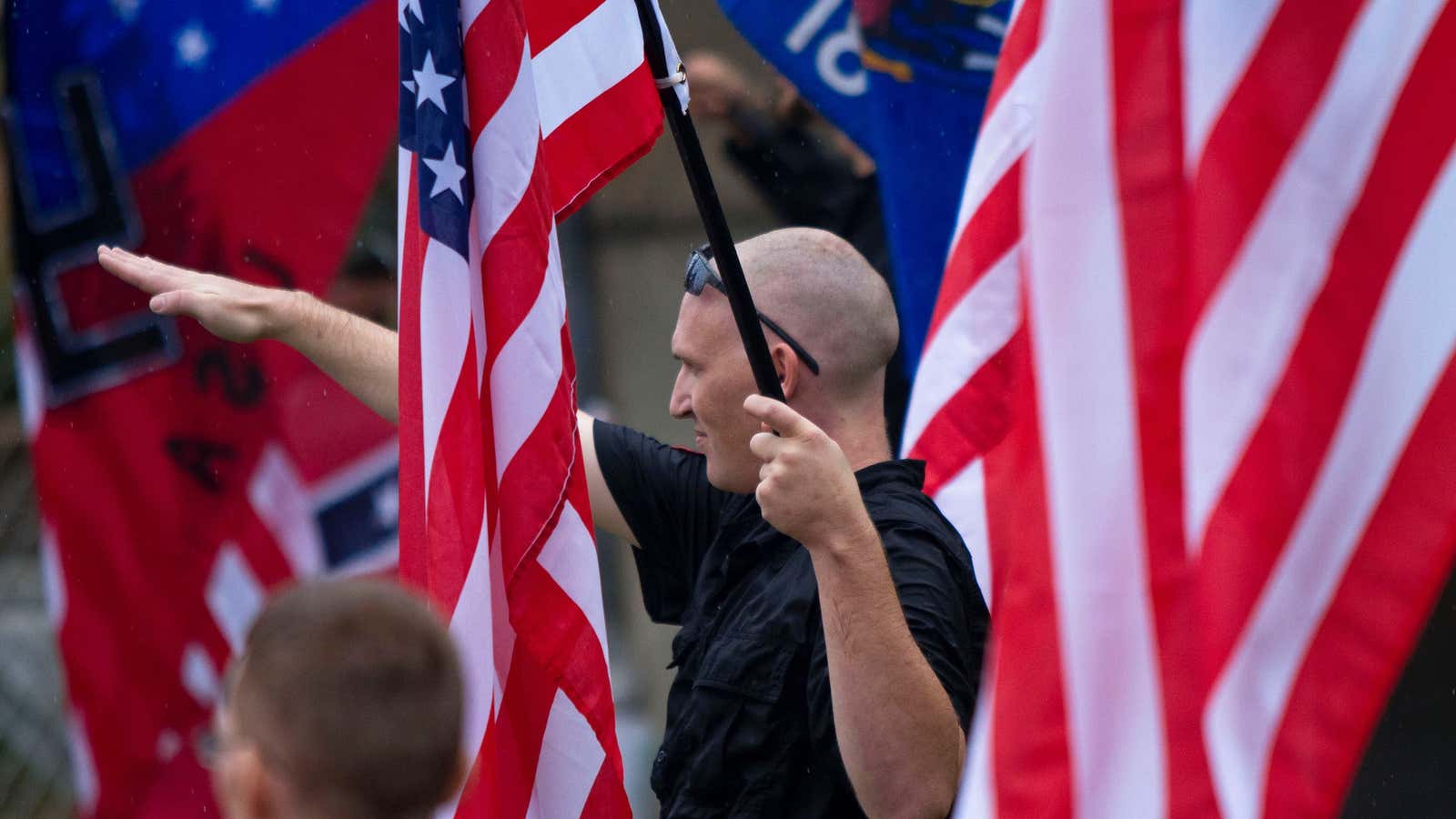Twitter is finally making good on its promise to bolster anti-harassment measures.
On Nov. 15, the site introduced improved tools for users to handle abuse, and also stepped up its against alt-right figureheads. The company temporarily banned several accounts associated with the alternative-right movement, comprised of those who believe “white identity” is under attack by multicultural forces, political correctness, and social-justice warriors. Such groups masterfully employ social media to spread their influence, and one of their poster children—Steve Bannon, former head of Breitbart News—has been named a senior adviser in Donald Trump’s administration.
Among the accounts shut down by Twitter are those run by Richard B. Spencer, Pax Dickinson, Paul Town, Ricky Vaughn, and the Radix Journal. Spencer is the president of white nationalist think tank the National Policy Institute, which is “dedicated to the heritage, identity, and future of people of European descent in the United States.” He also runs “independent bookmaker” Washington Summit Publishers. Twitter accounts for both organizations were also suspended.
“I am alive, physically, but digitally speaking, there has been execution squads across the alt-right,” Spencer said in a YouTube video published yesterday. “There is a great purge going on. They are purging people on the basis of their views.” The video is titled “A Knight of Long Knives,” the term used for Adolf Hitler’s 1934 killing of Nazi leaders.
“Twitter rules prohibit violent threats, harassment, hateful conduct, and multiple account abuse, and we will take action on accounts violating those policies,” a Twitter spokesperson said.
The platform’s hateful conduct policy bars users from attacking, threatening, or promoting violence against people on the basis of race, religion, gender, and sexual orientation; among other parameters. In July, the site “permanently suspended” Breitbart editor Milo Yiannopoulos after he allegedly incited his followers to bombard Ghostbusters actress Leslie Jones with racist and misogynistic tweets. Yiannopoulos had also used Twitter to call rape culture “a fantasy” and to mock students calling for safe spaces at universities, among other controversial statements.
But Twitter’s rules have made white nationalists a tricky group to handle: Discussions of ”white genocide” (the notion that the white race is directly endangered by an increasingly diverse society) may border on bigotry and racism, but don’t always pose a threat or incite harm directly. Other extremist groups—black nationalist, antigovernment activists, anarchists, etc.—are likewise complicated to ban.
“There is no one who will make the case for ISIS, but there are people who will make the case for various gradations of racist activity,” says J.M. Berger, an author and analyst studying extremism.
The latest measures come in the wake of an extreme uptick of people following nationalist and neo-Nazi accounts.
Of course, combating sexist bullying, racism, and anti-semitism may not be Twitter’s only motive. Nothing wakes a tech startup up to its problems like losing potential bidders.




